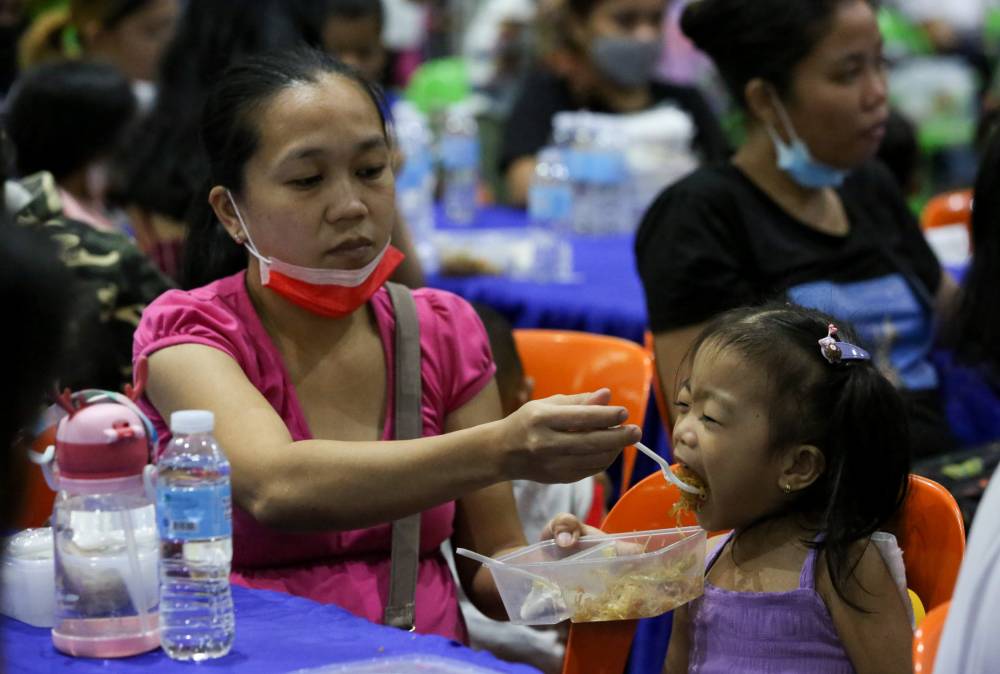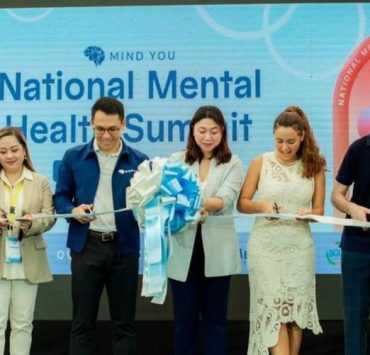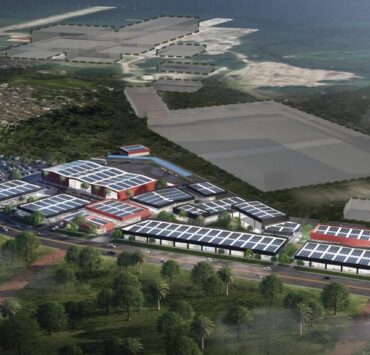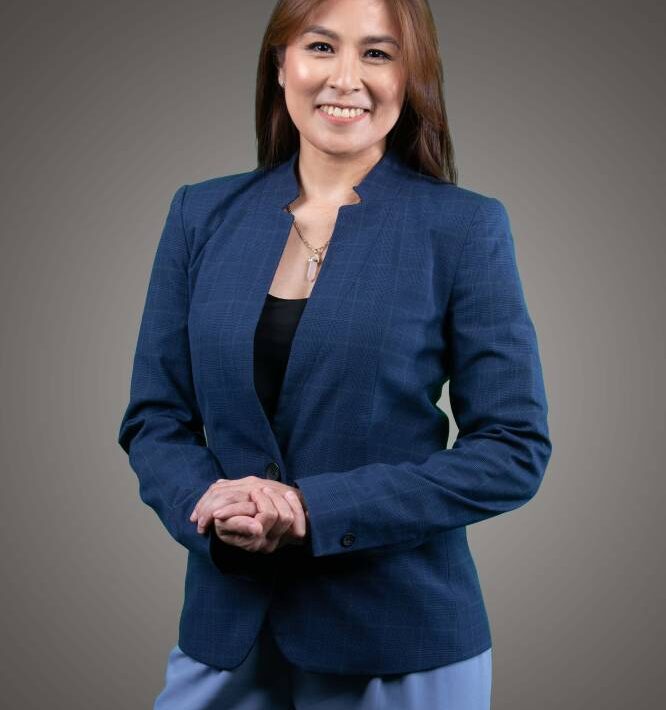Good health, well-being: PH can’t slow down on SDG3

The third Sustainable Development Goal (SDG) under the United Nations’ (UN) 2030 Agenda is Good Health and Well-Being — that is, ensuring healthy lives and promoting the well-being of people of all ages.
According to Unicef, “This goal addresses all major health priorities: reproductive, maternal, newborn, child and adolescent health; communicable and non-communicable diseases; universal health coverage; and access for all to safe, effective, quality and affordable medicines and vaccines.”
Achieving such global health goals faces significant challenges, warns the UN, with progress having slowed since 2015 in areas like maternal mortality, premature deaths from major noncommunicable diseases, and access to essential healthcare.
Despite achievements made in improving the world population’s health in recent years, SDG 3 highlights that vast inequalities in health care access still persist. A significant portion of the global populace remains unable to access vital healthcare services. Addressing disparities is critical to be able to bridge this gap and ensure equitable healthcare provision for all.
The Covid-19 crisis exacerbated existing challenges to achieving global health, though countries like the Philippines are continuing to exert effort to achieve their public health goals.
According to the 2024 Sustainable Development Report, the Philippines’ score in SDG 3 is “stagnating,” or at most increasing at less than half of the required rate. Lamentably, in 2023, only one target under SDG 3 — Universal Health Coverage — was on track.
Technical assistance
However, through partnerships across sectors, programmatic interventions are taking place in the country.
One such example is a program providing technical support to strengthen health systems and help achieve universal health coverage, spearheaded by the World Health Organization (WHO) in partnership with the Bill and Melinda Gates Foundation and the European Commission Directorate-General for International Cooperation and Development.
The technical assistance aims to improve equitable, gender-responsive, and disability-inclusive access to integrated, people-centered health services, with an emphasis on primary health care, by strengthening service delivery such as health care provider networks, the health workforce, essential medicines and health technologies, and health financing, among others.
According to available information in the UN Philippines’ website, the program has been running nationwide since the start of 2024 and is expected to end in 2028.
It aims to address SDG targets 3.b (support research and development of vaccines and medicines for communicable and noncommunicable diseases that primarily affect developing countries), 3.c (substantially increase health financing and the recruitment, development, training, and retention of the health workforce in developing countries), and 3.8 (achieve universal health coverage), as well as targets in SDG 16 (Peace, Justice, and Strong Institutions) and SDG 17 (Partnerships for the Goals).
A 2023 case study published by WHO revealed that, in 2021, the most common causes of morbidity in the Philippines were primarily infectious diseases, while the top 5 causes of mortality were related to noncommunicable diseases.
Efforts to combat disease have been complicated by developments other than the pandemic. An article by Heidi Larson, Kenneth Hartigan-Go, and Alexandre de Figueiredo published in 2018, for instance, reported findings by the Vaccine Confidence Project that showed a dramatic drop in vaccine confidence among Filipinos following the Dengvaxia vaccine scare in 2017.
Confidence dropped from 93 percent of Filipinos “strongly agreeing” that vaccines are important in 2015, to just 32 percent in 2018.
This development would have a significant effect on succeeding vaccination campaigns. A Social Weather National Survey from December 10 to 14, 2022 showed that 69 percent of 9.5 million unvaccinated Filipino adults were still unwilling to get Covid-19 vaccinations.
Substantial progress, but…
The Department of Health has been implementing its own public health programs designed to address the triple burden of diseases in the country, namely: morbidity caused by infectious diseases, mortality by noncommunicable diseases, and emerging incidences of injuries, mental health, and alcohol and drug abuse.
These public health programs include the National Immunization Program; the Women, Men, and Children’s Health Development Programs; Tuberculosis, Malaria, Schistosomiasis, Leprosy, and Rabies Control Programs; and HIV/AIDS and STI Prevention programs, among others.
The WHO has recognized the strides the Philippines has made on a number of fronts: “Health insurance now covers 92 percent of the population. Maternal and child health services have improved, with more children living beyond infancy, a higher number of women delivering at health facilities and more births being attended by professional service providers than ever before.
Access to and provision of preventive, diagnostic and treatment services for communicable diseases have improved, while there are several initiatives to reduce illness and death due to noncommunicable diseases.”
On the other hand, it noted that “Despite substantial progress in improving the lives and health of people in the Philippines, achievements have not been uniform and challenges remain. Deep inequities persist between regions, rich and the poor, and different population groups.
Many Filipinos continue to die or suffer from illnesses that have well-proven, cost-effective interventions, such tuberculosis, HIV and dengue, or diseases affecting mothers and children.”
Local health response
In Bangladesh, meanwhile, Doctors Worldwide (DWW), a non-governmental organization, implemented the Postgraduate Fellowship in Refugee and Migrant Health (PGF), a medical capacity-building program serving local healthcare workers in humanitarian settings.
It began in 2017 when DWW identified a need to invest in the local health response by providing comprehensive training to Bangladeshi medical doctors serving Rohingya refugees and host communities.
As the majority of first responders in any crisis are local people, DWW also recognized the sustainable and urgent need to empower the national healthcare workforce responding to the Rohingya crisis.
DWW deployed 26 expert faculty doctors on primary care, emergency medicine, pediatrics, maternal health, gender-based violence, and mental health to share knowledge and skills while simultaneously mentoring local healthcare workers in Bangladesh.
In total, the PGF has helped train 129 doctors since January 2018. Over 986,400 patient consultations with doctors trained through the program have taken place.
Moreover, it has provided 260 sessions of clinical mentorship opportunities in camps, and has also distributed over 772 additional professional certifications. This is on top of 201 sessions or 787 hours of clinical shadowing and mentorship within camps and a further 172 sessions of teaching, among other achievements.
The program is designed to be adapted to other settings in support of the 2030 SDG Agenda. The DWW aims to roll out the PGF globally in similar settings to support local health responses.
Sources: sdgs.un.org, undp.org, dashboards.sdgindex.org, philippines.un.org, who.int, sdg.neda.gov.ph, sws.org, ncbi.nlm.nih.gov, iris.who.int, statista.com





















